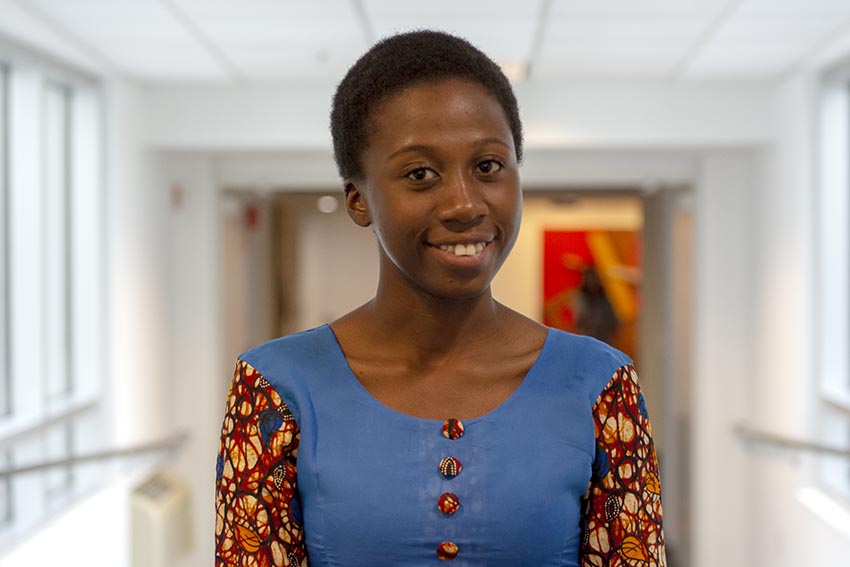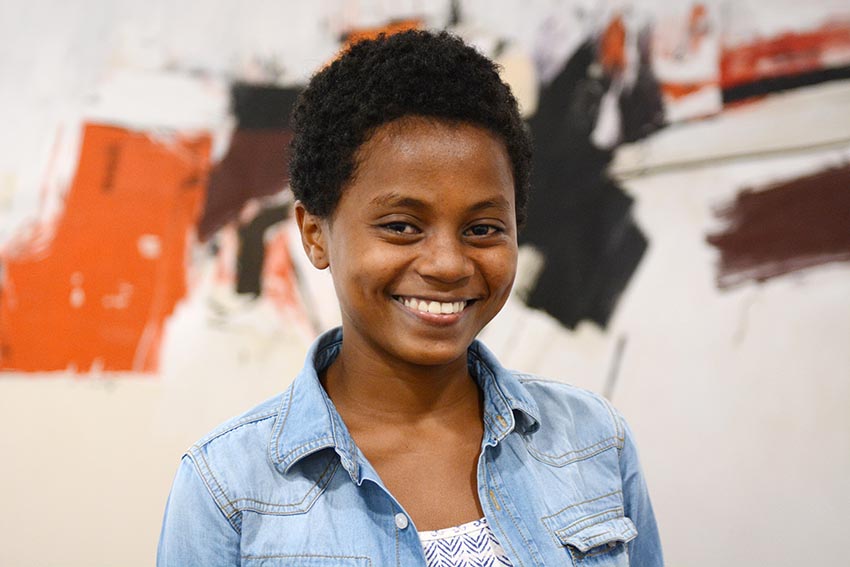The Determined, Resilient, Empowered, AIDS-free, Mentored and Safe women (DREAMS) partnership aspires to reduce HIV infections among adolescent girls and young women in 10 sub-Saharan African countries. These countries alone accounted for more than half of the HIV infections that occurred among adolescent girls and young women globally in 2015.
DREAMS reaches beyond the health sector to address the direct and indirect factors that increase girls’ HIV risk, such as poverty, gender inequality, sexual violence and inadequate education. Interventions can include paying school fees, providing bicycles to girls who would otherwise walk long distances to school, supplying sanitary napkins for menstrual hygiene management and offering mentoring to help girls avoid early pregnancy, gender-based violence and discrimination. DREAMS is supported by the U.S. President’s Emergency Plan for AIDS Relief (PEPFAR), the Bill & Melinda Gates Foundation, Girl Effect, Johnson & Johnson, Gilead Sciences and ViiV Healthcare.
Two young women who participate in DREAMS projects attended FHI 360’s 2018 Gender 360 Summit and discussed how DREAMS is making a difference in their lives. Here are their stories.
“I am now full of dreams … and my path to the fulfillment of such dreams is more visible than ever.” — Chawanangwa Sitima

Chawanangwa Sitima, Malawi | Photo credit: Leanne Gray/FHI 360
When Chawanangwa Sitima was nine years old, her parents divorced. Her mother struggled to support Chawanangwa and her four siblings. After her mother lost her job, Chawanangwa moved from Kalino Village, her home in Zomba in southern Malawi, to Lilongwe, Malawi’s capital city, to stay with her grandmother, who is a hospital worker. Although her mother and grandmother were supportive of Chawanangwa’s education, she could barely pay her school fees and had only one exercise book for several assignments. “I thought of dropping out of school because I didn’t have many resources,” said Chawanangwa, who is now 18 and a student at St. Mary’s Secondary School.
About two years ago, Chawanangwa began receiving support from FHI 360’s DREAMS Innovation Challenge (IC) project: Malawi Communities Investing in Education for Child Health and Safety project. DREAMS IC paid for her school fees and materials, including shoes, two uniforms and school bags. The support, she says, enabled her to continue her education without interruption.
DREAMS IC also provides Chawanangwa and about 50 of her peers with weekly mentoring. Every Friday, the girls meet to discuss sensitive topics, such as how to prevent the spread of HIV and stop gender-based violence, and how to share this information with others in their communities. The girls talk about their experiences and help each other find solutions, an antidote to peer pressure, school dropouts, unintended pregnancies, early marriage, HIV and sex work. “We help people focus on goals and their education,” said Chawanangwa. “We teach people not to focus on what people are saying in the community.”
The mentoring provided through DREAMS IC has helped Chawanangwa become more assertive, confident and forward-looking. “It has encouraged me to pursue excellency in every area of my life, take my education seriously and face the future with hope,” she said. “I am now full of dreams … and my path to the fulfillment of such dreams is more visible than ever.”
One of Chawanangwa’s dreams is to go to university to study how to prevent malnutrition, which accounts for about half of all child deaths in Malawi. She would like to open a home to provide support to people in her community. “There are many disadvantaged girls in Malawi who require support, but there are few support systems for them,” Chawanangwa says. “I want to improve their lives by mentoring them and extending the skills I have acquired through DREAMS.”
She took her Form Four exams at the end of June and awaits her results. Watch Chawanangwa tell her story at FHI 360’s Gender 360 Summit.
FHI 360’s DREAMS approach in Malawi focuses on improving girls’ access to secondary school as a means to curb the incidence of HIV. In addition to other activities, the DREAMS project in Malawi has provided scholarships to 11,451 students (10,281 girls and 1,170 boys) since the start of project activities in September 2016.
“In the future, I hope that I can look back and say that I have changed some things.” — Ana Maria Belo

Ana Maria Belo, Mozambique | Photo credit: Leanne Gray/FHI 360
As a case manager and DREAMS ambassador in Beira, Mozambique, Ana Maria Belo, 19, has developed the courage — and skills — to discuss even the most sensitive sexual and reproductive health issues with girls and women ages 10 to 24.
Since 2016, Ana Maria has worked with DREAMS to create safe spaces for adolescents to talk openly about pregnancy and HIV prevention, gender identity and gender-based violence. She works at community health and vocational training centers, or through mobile brigades, to provide counseling on family planning and HIV prevention and hand out condoms. She holds sessions with community members that address gender norms and sexual and reproductive health, among other topics. At schools, she works with teachers to provide mentoring and counseling to girls.
A critical aspect of Ana Maria’s job is to correct misinformation. An 18-year-old woman she met with twice a week in a school mentoring group confided that she and her 21-year-old boyfriend were sexually active. Her boyfriend had done research on the internet and told her it was best to take emergency contraception to prevent pregnancy. Through follow-up questions, Ana Maria determined that the couple was having intercourse two or three times a week and was relying on emergency contraception, when a regular method of birth control would likely be more effective with fewer side effects. Ana Maria recognized that the young woman and her partner lacked the knowledge to make good decisions. “I thought, ‘Wow. She is taking emergency contraception so often because she does not know that there are other contraceptive methods,’” said Ana Maria.
Ana Maria took the young woman to a youth-friendly health services center, where the young woman talked with a health provider about what contraceptive method would be best for her. Recognizing that the young woman’s partner also needed better information, Ana Maria invited him to the health facility. The three of them talked about the risks of relying on the internet for information. They also discussed different contraceptive methods, including the importance of using condoms for HIV prevention, and the couple received HIV testing.
Through DREAMS, Ana Maria, who is also studying psychology at Pedagogic University, discovered her passion for helping youth. While she is motivated to act as an individual, she also sees the need for large-scale change. “I hope that society overcomes problems such as harmful gender norms and that rights are respected and that we respect each other,” she said. She also mentions the need to improve the lives of people who have HIV and to increase social inclusion for those with disabilities, whom she says are more vulnerable to HIV, early motherhood and other issues. “In the future, I hope that I can look back and say that I have changed some things.”
When she started working with DREAMS, Ana Maria says she was shy and could not communicate well at school or at home, especially with her father. She now has gained the courage to speak out against gender-based violence and other issues she cares about deeply. “I would say that I am still shy. But to advocate and fight for the rights of girls, I put on a mask, and I become another animal.”
DREAMS in Mozambique, Beira District, Sofala Province, is primarily implemented by World Education and FHI 360’s CHASS project. Through the CHASS project, DREAMS has provided HIV counseling and testing, family planning and sexual and gender-based violence services to 78,516 adolescent girls and young women since fiscal year 2016.
Learn more about DREAMS: Watch the keynote address given by Ambassador Deborah L. Birx, U.S. Global AIDS Coordinator and U.S. Special Representative for Global Health Diplomacy, at the 2018 Gender 360 Summit.
